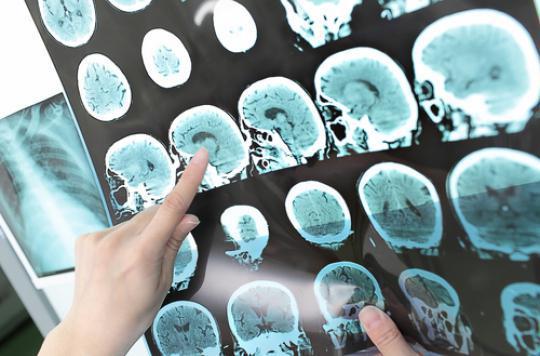The skull of a French patient would contain 90% cerebrospinal fluid, instead of the brain. Yet he leads a normal family and professional life.

The human brain has not finished surprising scientists. And this time, it’s a story straight from France that stunned doctors. Reported by The Lancet in 2007, and taken up by the dailies for a few days, it concerns a 44-year-old Frenchman. As the man went to hospital with pain of unknown origin in his left leg for 2 weeks, the MRI made a barely believable discovery. The patient’s skull is said to contain 90% cerebrospinal fluid, resulting in his skull being virtually empty.
This clinical case is put back on the agenda by Axel cleeremans, professor of cognitive sciences at the Free University of Brussels (Belgium). He explains that this patient is “married, father of 2 children, and that he works in the administration”. In short, a forty-something with a completely normal life, despite his atrophied brain ”. “And he has no history of neurological disorders,” adds the specialist. The Belgian psychologist also specifies that the man would have an IQ of 75. He is therefore one of the men qualified as not very intelligent, but is not considered to be mentally handicapped.
A disease in childhood
The accumulation of cerebrospinal fluid in his skull is believed to be due to hydrocephalus occurred during his childhood. This severe neurological abnormality is characterized by a buildup of cerebrospinal fluid in the brain. The doctors who took care of him at that time had implanted a small tube in him to evacuate the fluid to other parts of the body, which was removed when he was 14 years old. Except that this liquid has apparently accumulated over the years, once again.
90% of neurons absent
In the magazine SciencePost, Axel cleeremans believes that this clinical case challenges fundamental theories based on mindfulness. “There is no theory that explains how a person, 90% of whose neurons are missing, can behave completely normally,” he says. Indeed, his daily life is in no way disturbed while all the areas of the brain that control sensitivity, speech or hearing are considerably reduced …
The Belgian psychologist therefore advances a new theory: “If the brain is not damaged suddenly, but gradually, the organ remains able to adapt”. However, studies will have to be carried out over the next few years to confirm this hypothesis of neuroplasticity.
.

















